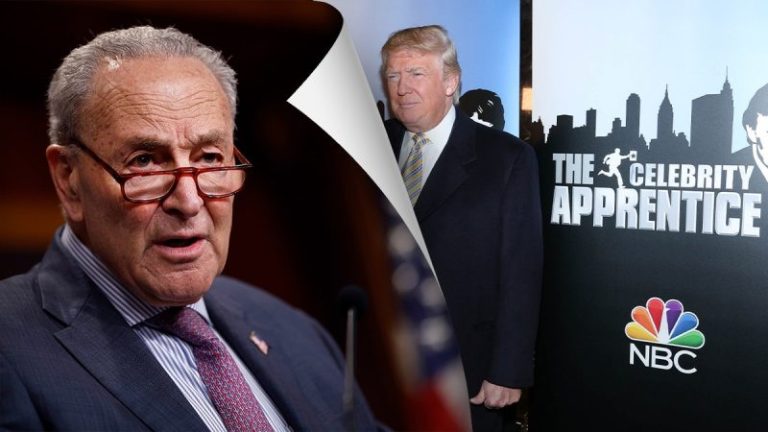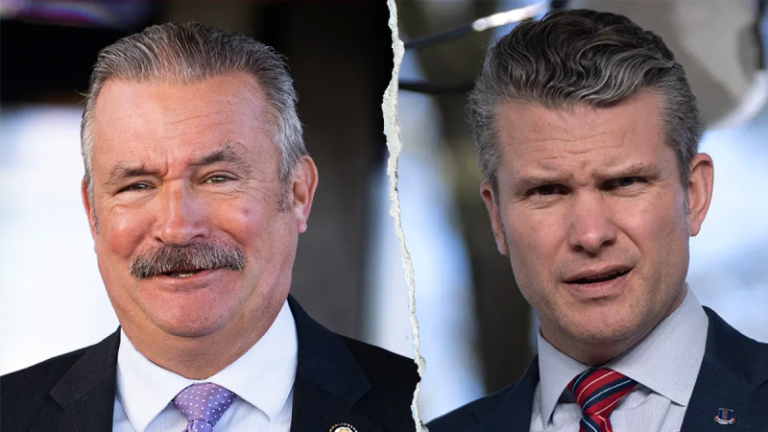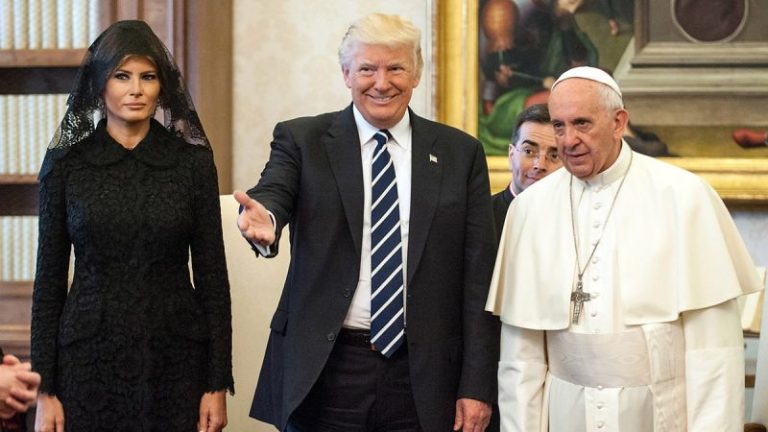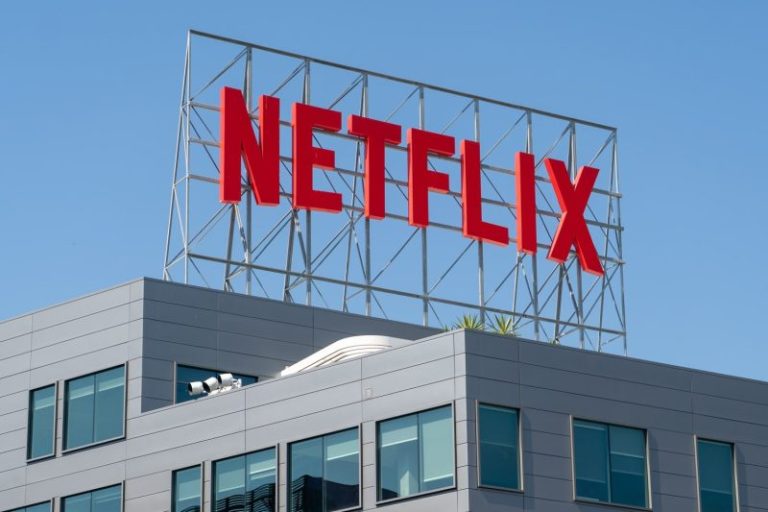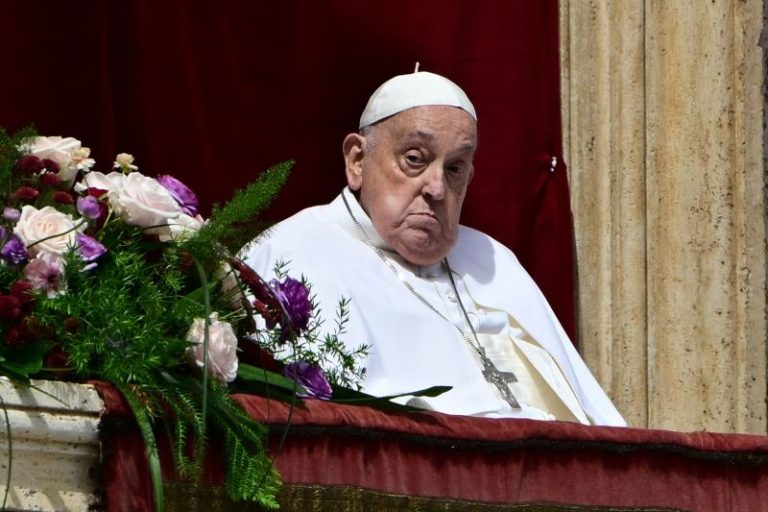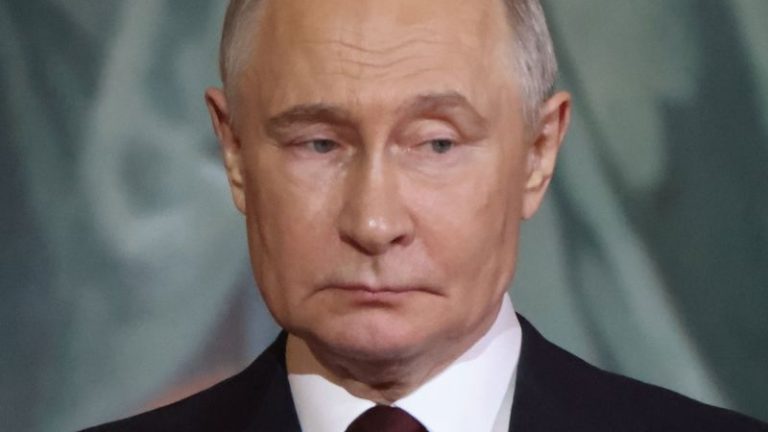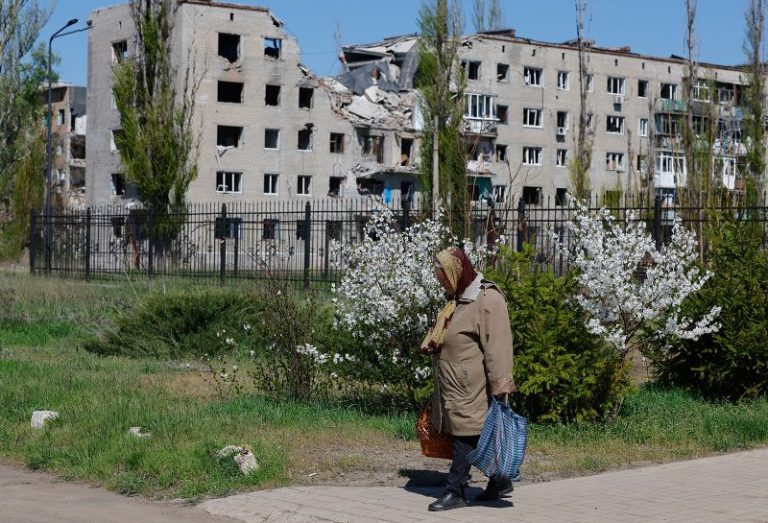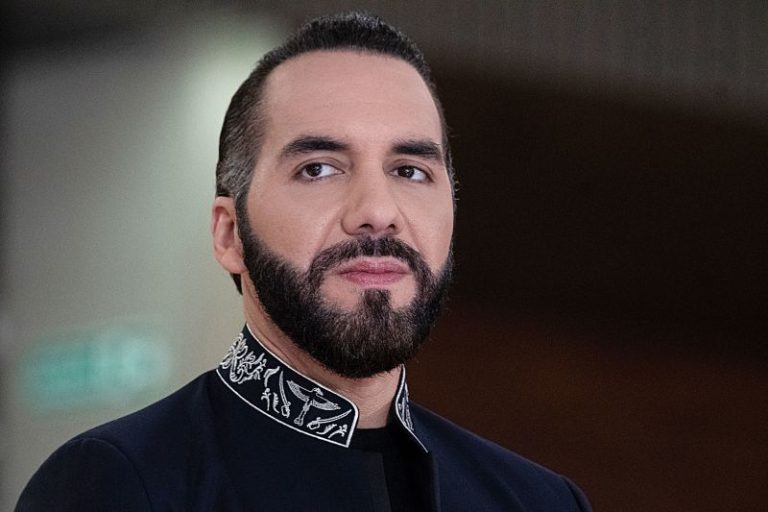With President Donald Trump’s former reality TV show ‘The Apprentice,’ streaming on Amazon Prime as of last month, politically astute viewers across the political spectrum have zeroed in on an episode from when Sen. Chuck Schumer, D-N.Y., now one of the president’s biggest political detractors, praised his fellow New Yorker as a business prodigy.
During Season 5, Episode 8, of ‘The Apprentice’ in 2006, contestants were given a challenge — as was typical during each episode — and the winners of said challenge got the chance to fly to the nation’s capital and have breakfast with Sen. Chuck Schumer, D-N.Y. During the breakfast, Schumer sought to draw parallels between his family and Trump’s, while also showering praise on the president, telling the contestants he always knew Trump, even as a young person, ‘was going to go places.’
‘I was born in Brooklyn, the same place where Donald Trump’s family comes from,’ Schumer reminisced with the contestants during breakfast at the famous Hay-Adams hotel in Washington, D.C. ‘His father, and my grandfather, were builders together in Brooklyn.’
‘Wow!?’ one contestant could be heard replying. ‘Really?’ asked another.
‘Yeah!,’ Schumer responded to the room.
The show then cut to Schumer lauding Trump as a business prodigy.
‘Even when [Trump] was much younger, you knew that he was going to go places,’ Schumer said, before a voice-over from one of the contestants present at the breakfast reiterated that ‘Sen. Schumer and Mr. Trump are good friends.’
Despite Schumer’s apparent friendly sentiment towards the president in 2006, as evidenced by his appearance on ‘The Apprentice,’ the Democratic New York senator told Politico in 2016, ahead of Trump’s first term, that, ‘[Trump] was not my friend.’ Rather, Schumer described his relationship with Trump as a ‘casual acquaintance.’
‘Donald Trump is a lawless, angry man,’ Schumer said of the president during an interview last month. ‘The fact that The Apprentice President Donald ‘You’re Fired’ Trump is refusing to hold people accountable just shows how weak he is,’ Schumer added in a post on social media earlier this month.
Considering Schumer’s vehement animosity towards Trump today, Michigan State GOP Sen. Aric Nesbitt, the Michigan Senate’s minority leader, remarked ‘How things change…’ in a post that highlighted the resurfaced clip of Schumer’s scene on ‘The Apprentice.’
But it’s not just Republicans having fun at Schumer’s expense.
‘As Schumer sells out our Constitution and democracy, you just gotta watch this clip of him sucking up to Trump on an episode of the Apprentice,’ remarked former Democratic Rhode Island legislator Aaron Regunberg. ‘What a world class slug of a man.’
Shortly before taking office during his first term, Trump was asked by MSNBC’s Joe Scarborough and Mika Brzezinski about whether he will be able to get along with Democratic leaders in Congress, such as Schumer. Trump struck a positive chord, saying at the time that he thought he would ‘be able to get along well with Chuck Schumer.’
‘I was always very good with Schumer. I was close to Schumer in many ways,’ Trump said at the time.
As time has progressed, however, Trump’s rhetoric towards Schumer has become increasingly critical of the senator, as the pair of political heavyweights continue to fight over whatever political issue is dominating Washington each week.
Recently, Trump took a jab at Schumer’s alleged lack of support for the Jewish community amid the rise in antisemitism, particularly on college campuses, in the wake of Hamas’ Oct. 7, 2023 attacks against innocent Israelis. Schumer is Jewish.
‘Schumer is a Palestinian, as far as I’m concerned,’ Trump told reporters from the Oval Office last month. ‘He’s become a Palestinian. He used to be Jewish. He’s not Jewish anymore.’
Trump’s comments from earlier this month also mirror a similar sentiment he relayed about Schumer during his most recent campaign for the presidency, referring to him as a ‘proud member of Hamas.’
In addition to Schumer, other high-profile public figures have praised the now-president, only to become his political enemy years later. In a 1988 interview with Oprah Winfrey, the celebrity talk show host appeared to be amazed at Americans’ ‘fascination’ with Donald Trump and even described him as a ‘folk hero’ for being so popular.
Meanwhile, celebrity music producer who co-founded Def Jam Records, Russell Simmons, similarly had nice things to say about Trump before he entered politics, calling him ‘very nice’ and remarking how supportive Trump has been to his family, according to media reports. Nonetheless, following the tragic politically motivated violence in Charlottesville during Trump’s first term, Simmons reportedly criticized his ‘friend’ for leading the legacy of a ‘great divider,’ and a ‘destroyer of the environment and … everything we as Americans have fought so hard to call ours.’
Fox News Digital reached out to Schumer’s office for comment but did not receive a reply in time for publication.

